Analysis of UK Competition Law: Monopolies and Market Practices
VerifiedAdded on 2023/03/22
|8
|573
|84
Report
AI Summary
This report provides a comprehensive overview of UK competition law, specifically addressing monopolies and anti-competitive practices. It begins by defining monopolies and explaining the relevant legislation, including the Competition Act of 1998, and its implications for market share and consumer protection. The report then explores the role of the Competition and Markets Authority (CMA), formerly the Competition Commission, in regulating monopolies. Further, it defines dominant positions within the EU common market and provides examples of how firms can misuse their power. The report also discusses exemptions under EU law, concluding with a case example of a company found guilty of abusing its dominant position. This analysis offers valuable insights into the legal framework governing competition and market practices within the UK and the EU.
1 out of 8

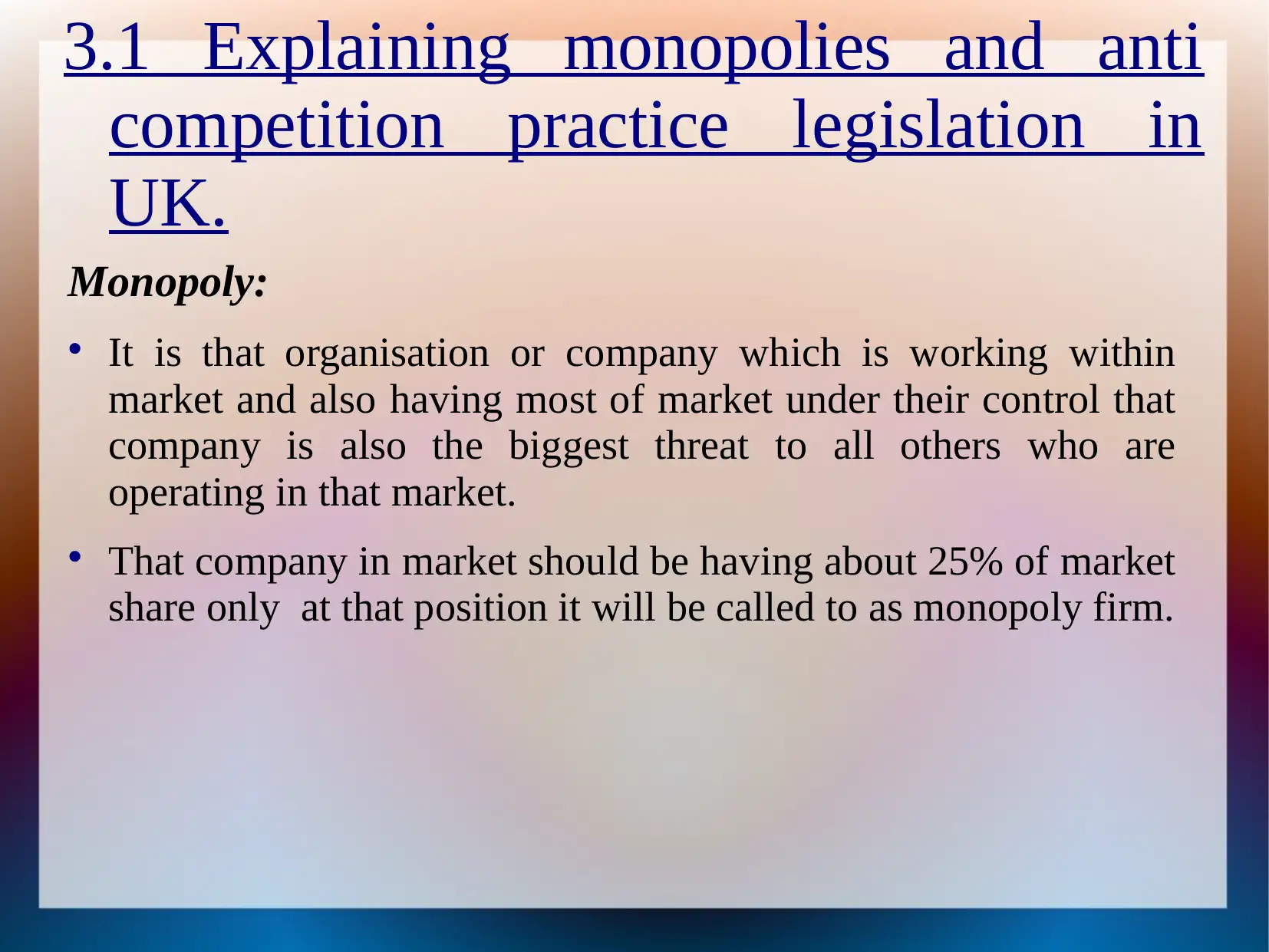
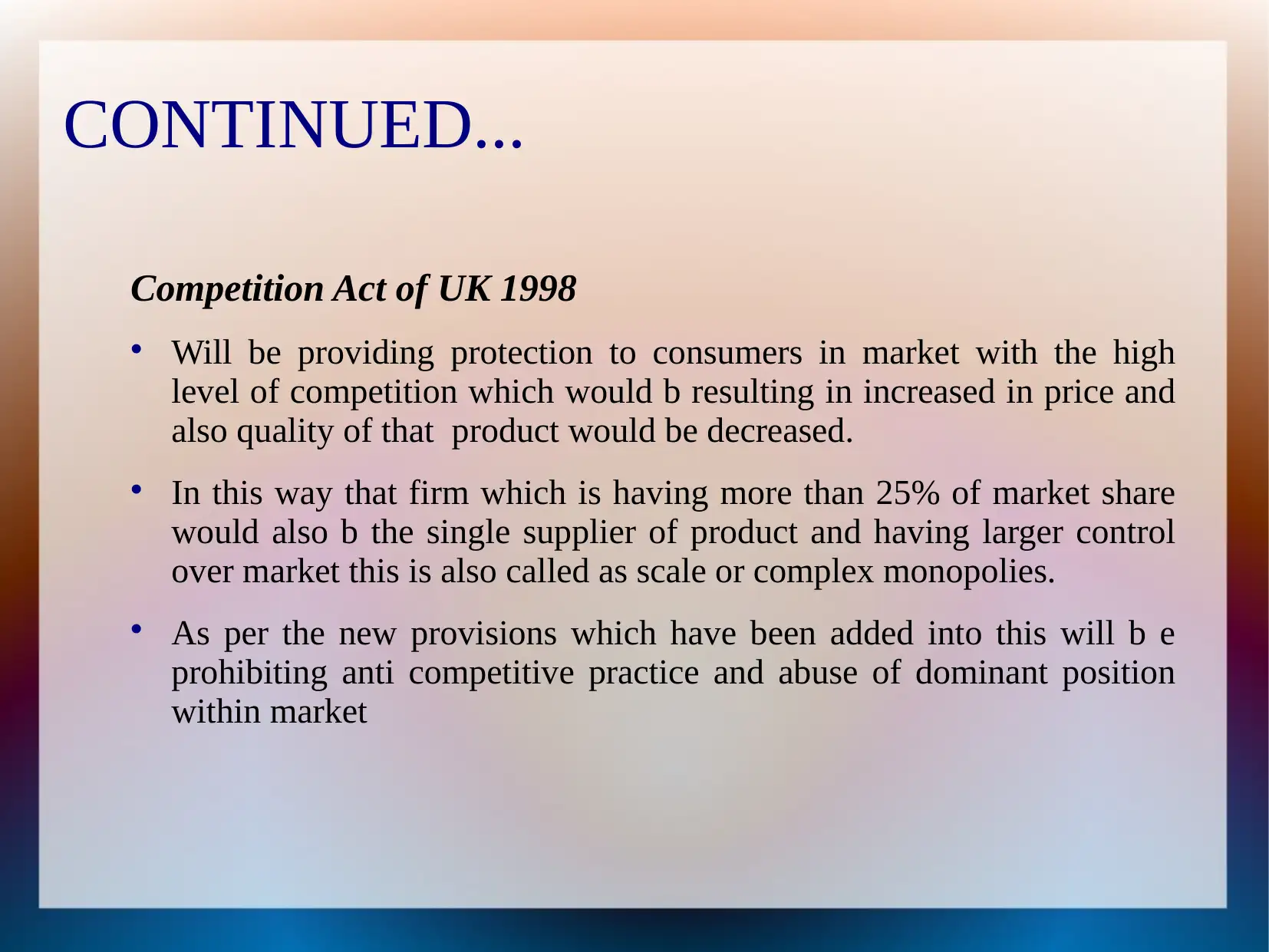

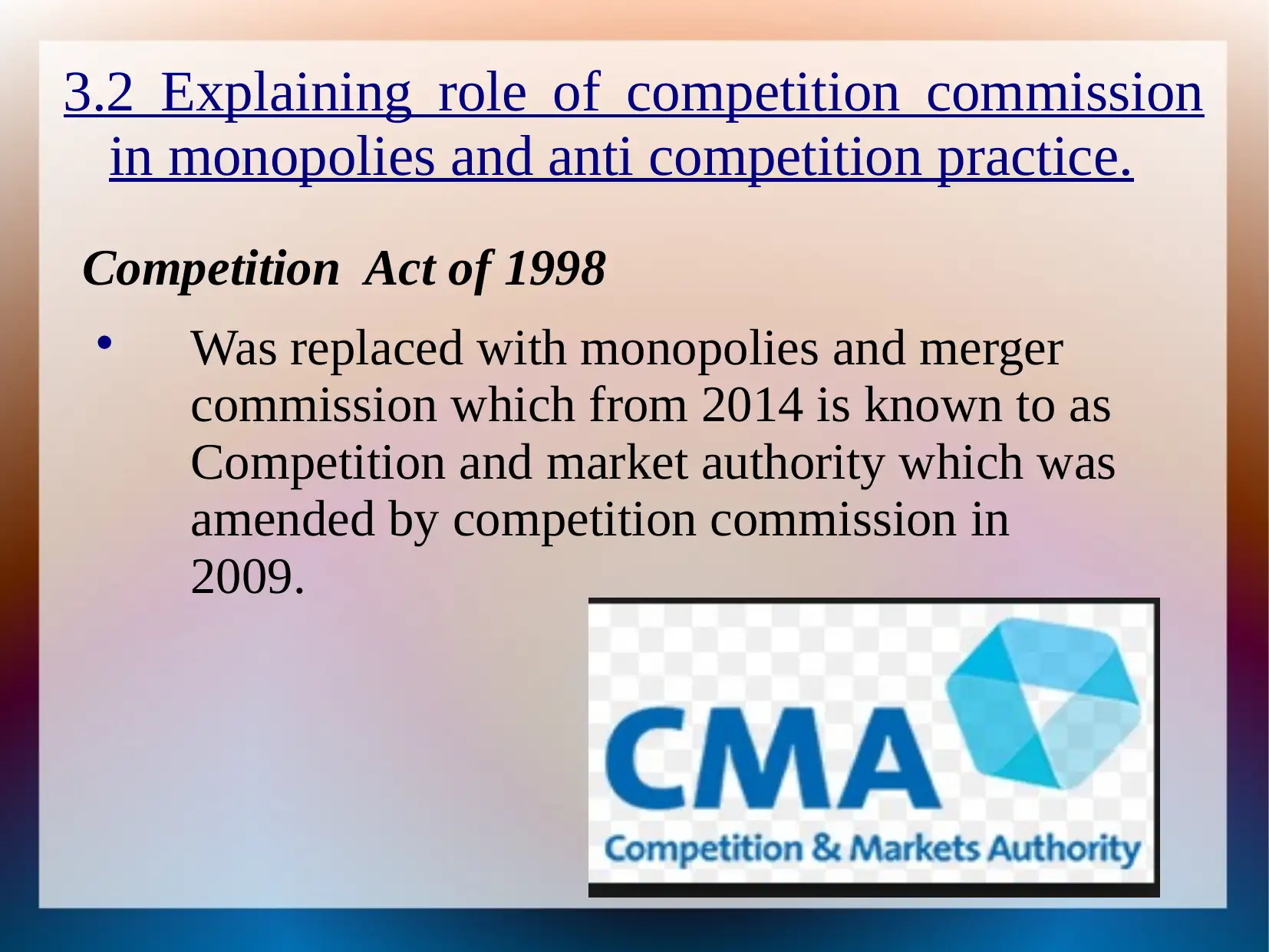
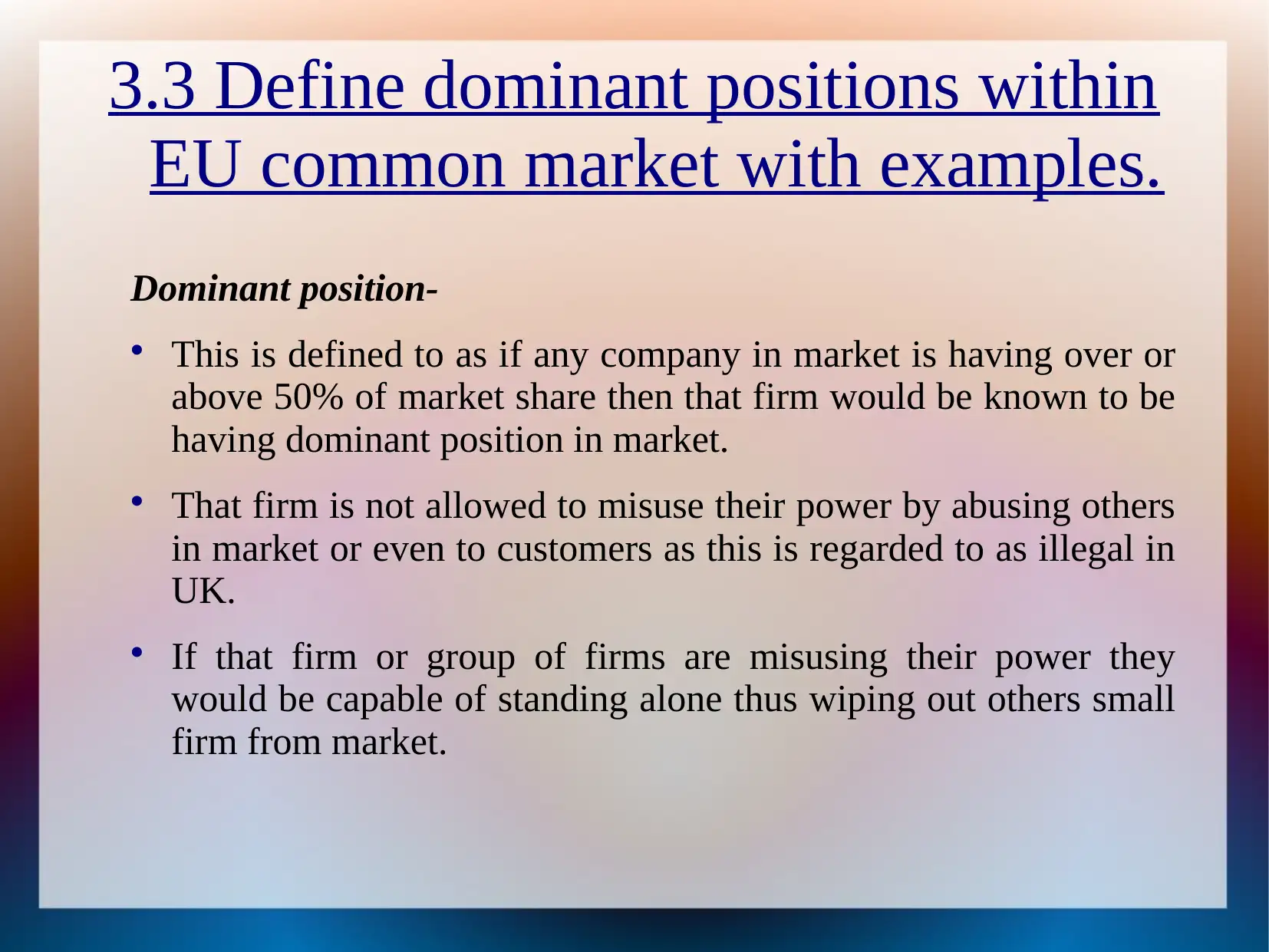
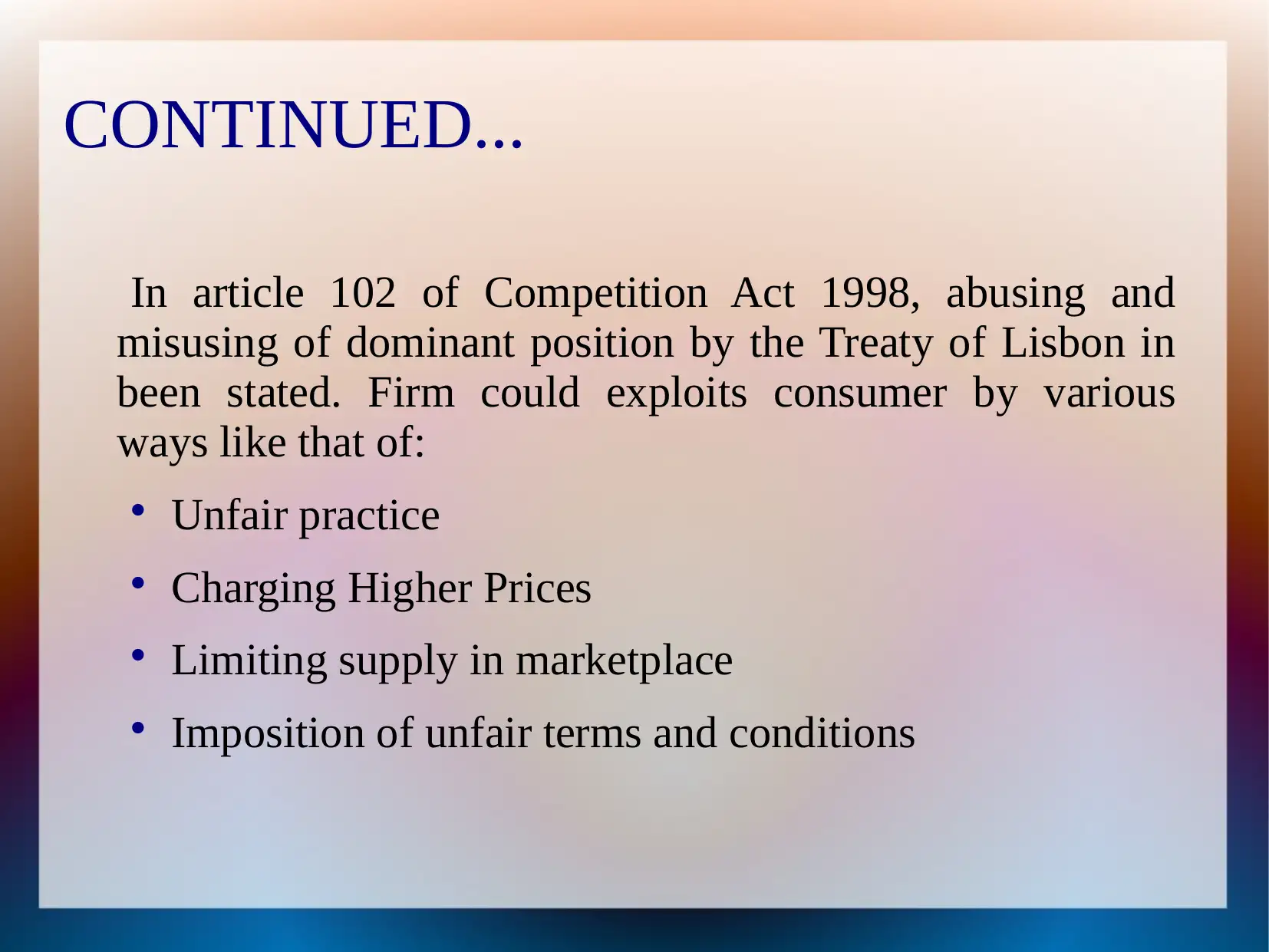
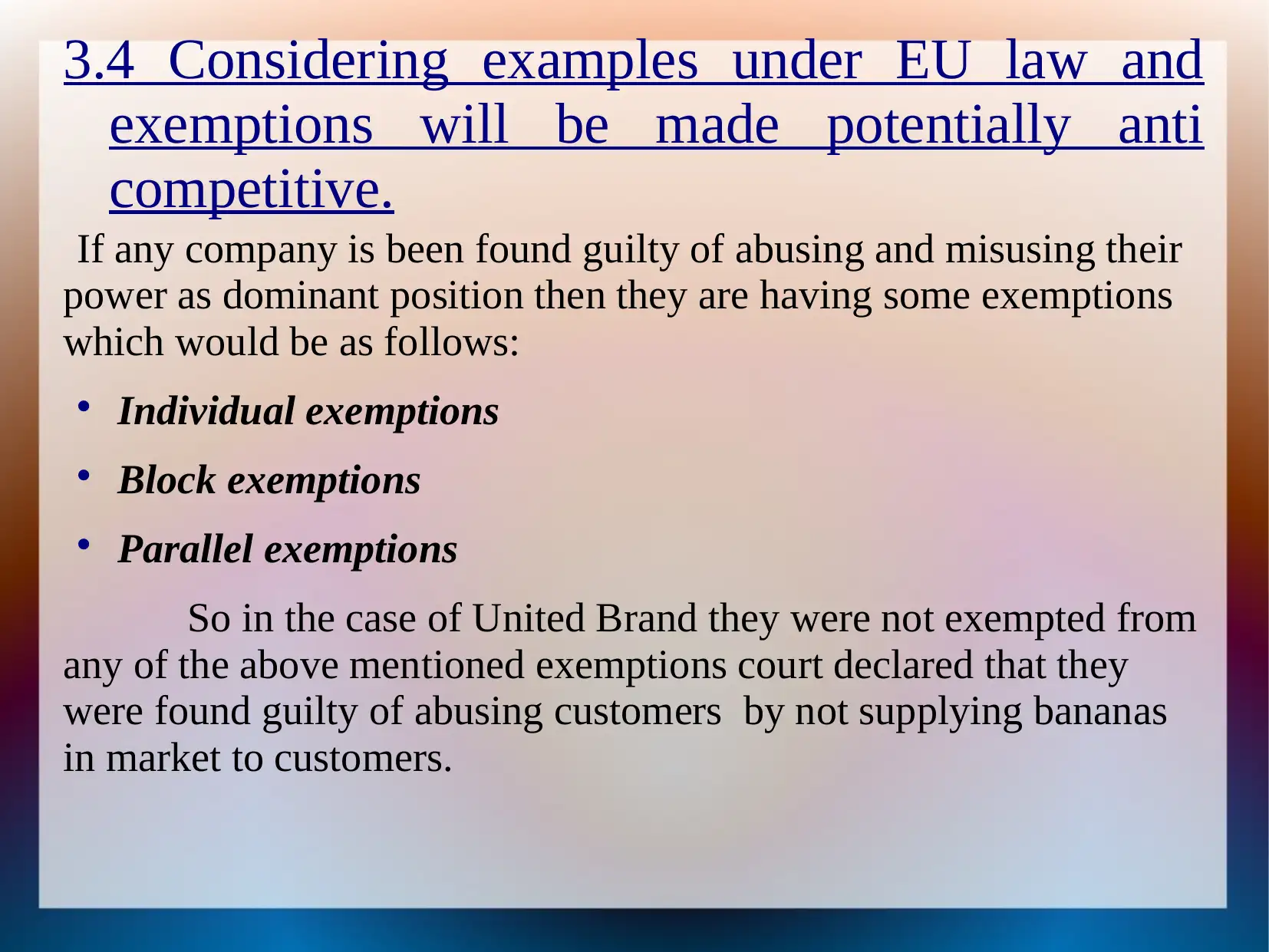
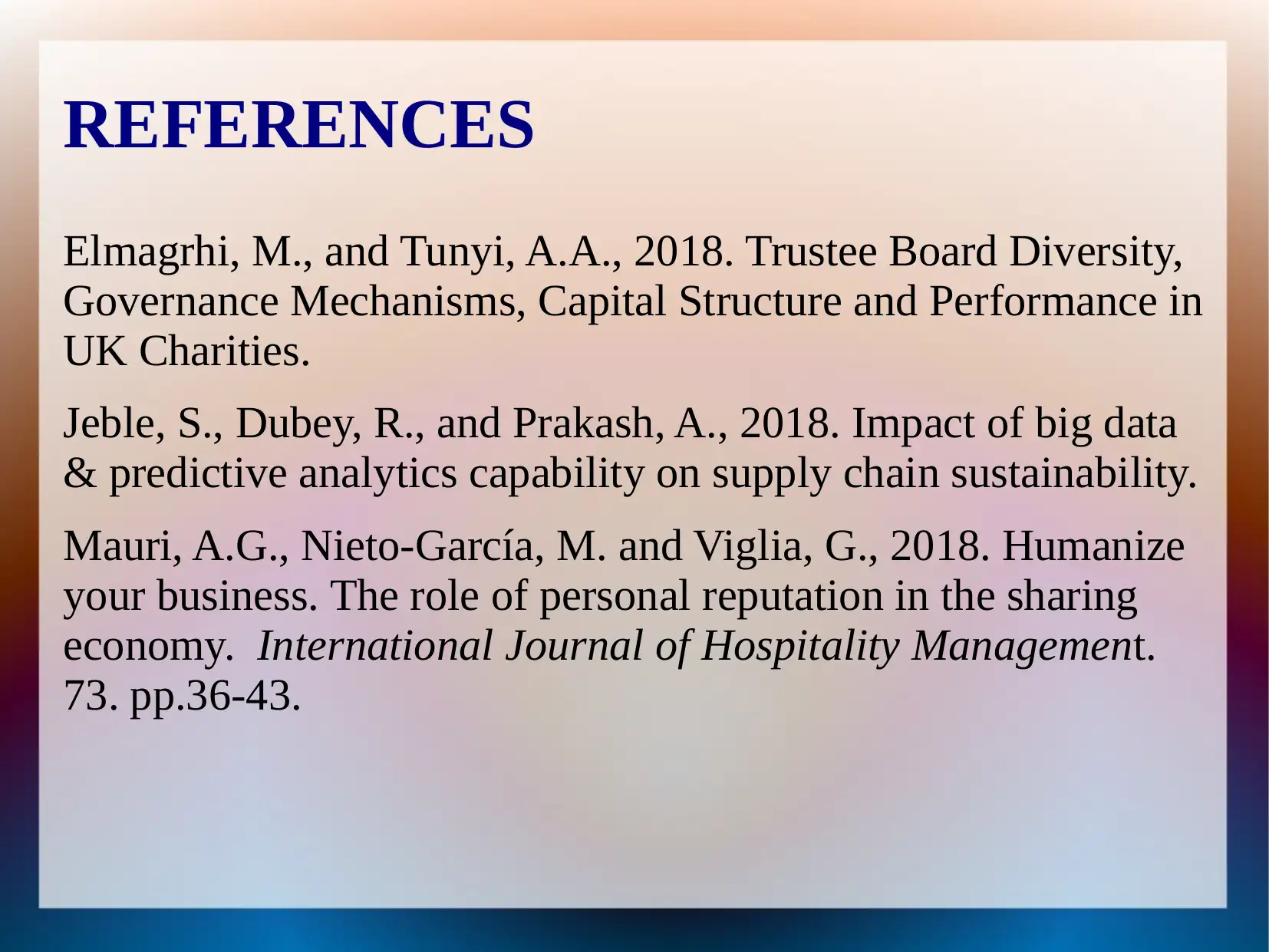





![[object Object]](/_next/static/media/star-bottom.7253800d.svg)